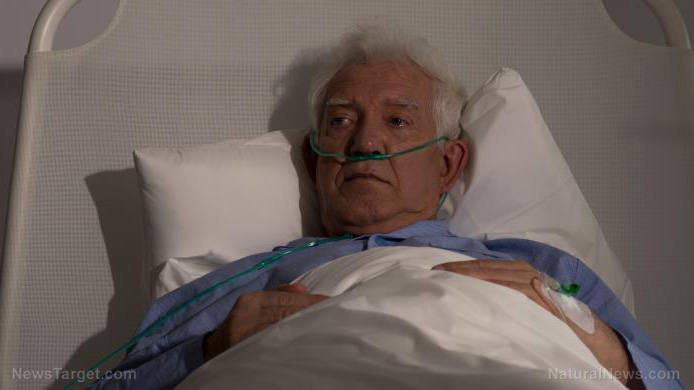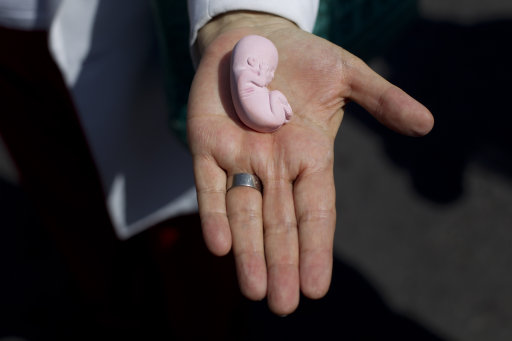NEVER FORGET: Blue Cross Blue Shield’s 2010 lawsuit named several Pfizer execs involved in kickback scheme
01/13/2023 / By Ramon Tomey

A lawsuit filed in 2010 by health insurer Blue Cross Blue Shield (BCBS) named several Pfizer executives involved in a kickback scheme. Under the said scheme, doctors who prescribed the anti-inflammatory drug Bextra for off-label use were handsomely rewarded.
According to a June 2010 CBS News report, BCBS accused Pfizer – specifically its subsidiary Pharmacia – of having a huge role in the kickback scheme. The Sweden-based Pharmacia merged with The Upjohn Company in 1995 to form Pharmacia & Upjohn (P&U). Pfizer later acquired P&U, with the deal being finalized in 2003.
BCBS’s complaint stated that P&U “paid targeted physicians both airfare and two to three days’ accommodations at lavish resorts in the Bahamas, Virgin Islands and across the United States.” The company “further entertained these physicians with golf, massages and other recreational activities.”
Moreover, the Pfizer subsidiary also organized lectures about Bextra – with the suit claiming that almost 100 such meetings were held. Such events often saw between 50 to 100 healthcare professionals showing up, “and Pharmacia paid them honoraria between $1,000 and $2,000” for their attendance.
“By simple arithmetic, [P&U] thus promoted unapproved uses and dosages of Bextra and provided entertainment for over 5,000 health care professionals,” the BCBS lawsuit argued. (Related: Pfizer pleads guilty to felony crime in fraudulent marketing of Bextra, pays billions in fines.)
The complaint named four Pfizer executives as co-defendants: Rick Burch, former senior vice president who planned and launched the anti-epileptic drug Lyrica; Jake Friedman, former vice president of sales responsible for promoting Lyrica and the anti-psychotic drug Geodon; Mark Brown, Pfizer executive director and; Matthew Lustig, former Pfizer district sales manager for South Florida.
The four were accused of preparing sales materials to convince doctors to use Bextra for surgical pain, an “off-label” use of the drug. Lustig, in particular, allegedly distributed documents to sales agents who promoted Bextra.
Pfizer still eyeing kickbacks 12 years on
Meanwhile, Pfizer denied the accusations by the health insurer. A spokesperson for the New York-based drug manufacturer said: “This is a case of an insurance company seeking its money back for medicines that physicians prescribed appropriately using their best medical judgments.”
Twelve years on, Pfizer appeared to be eyeing another way to make money by reviving its plan to cover the out-of-pocket expenses of Medicare patients afflicted with a rare heart condition. The drugs needed to address this condition – both manufactured by Pfizer – cost $225,000 a year.
Pfizer’s Vyndaqel and Vyndamax, both sold under the generic name tafamidis, treat a rare heart condition known as transthyretin amyloid cardiomyopathy (ATTR-CM) that can lead to progressive heart failure. An estimated 100,000 to 150,000 Americans, mostly elderly, have the condition. Sales of tafamidis to treat ATTR-CM amounted to a total of $2.02 billion in 2021.
But a February 2020 study pointed out that tafamidis was the most expensive cardiovascular drug launched in the United States. Given its high price, patients would need to bear annual co-payments of roughly $13,000 while Medicare covers the rest. Thus, Pfizer proposed to shoulder the co-payments of “middle-income” patients ineligible for low-income co-pay support.
In 2020, the Department of Health and Human Services‘ Office of the Inspector General said Pfizer’s proposal could violate the Anti-Kickback Statute by inducing patients to buy Pfizer’s drug while leaving taxpayers to bear the costs. Pfizer then challenged the department in court, but the Second Circuit Court of Appeals sided with the department. The company then appealed to the Supreme Court.
The high court also rejected Pfizer’s plan. It ruled on Jan. 9 that the proposal could amount to illegal kickbacks, upholding the appellate court’s July 2022 decision.
Visit BigPharmaNews.com for more stories about Pfizer’s involvement in kickbacks.
Watch Gabor “Gabe” Zolna talk about the Food and Drug Administration approving Pfizer’s Bextra, and then pulling the drug from the market a few years later.
This video is from the zolnareport.com channel on Brighteon.com.
More related stories:
Pfizer to pay $1.3 billion criminal fine for misbranding its drugs.
Pfizer paid the largest criminal fine in U.S. history – lawsuit details.
Fraud, negligence and criminal acts: A closer look at Pfizer’s scandalous history.
Remember when Pfizer paid out $2.3 billion to settle the largest healthcare fraud case in history?
Sources include:
Submit a correction >>
Tagged Under:
Bextra, Big Pharma, Blue Cross Blue Shield, bribery, corruption, deception, drugs, health insurance, kickback scheme, Medicare, off label use, Pfizer, pharmaceutical fraud, Pharmacia & Upjohn, Vyndamax, Vyndaqel
This article may contain statements that reflect the opinion of the author
RECENT NEWS & ARTICLES
PrescriptionDrugs.News is a fact-based public education website published by Prescription Drugs News Features, LLC.
All content copyright © 2018 by Prescription Drugs News Features, LLC.
Contact Us with Tips or Corrections
All trademarks, registered trademarks and servicemarks mentioned on this site are the property of their respective owners.


















